PayPal, a leading global payment platform, has seamlessly integrated QR code functionality into its services, providing a versatile and secure payment method for businesses and consumers alike. This comprehensive introduction delves into the workings, advantages, and burgeoning rise of PayPal QR codes, shedding light on their significance in today's digital economy.
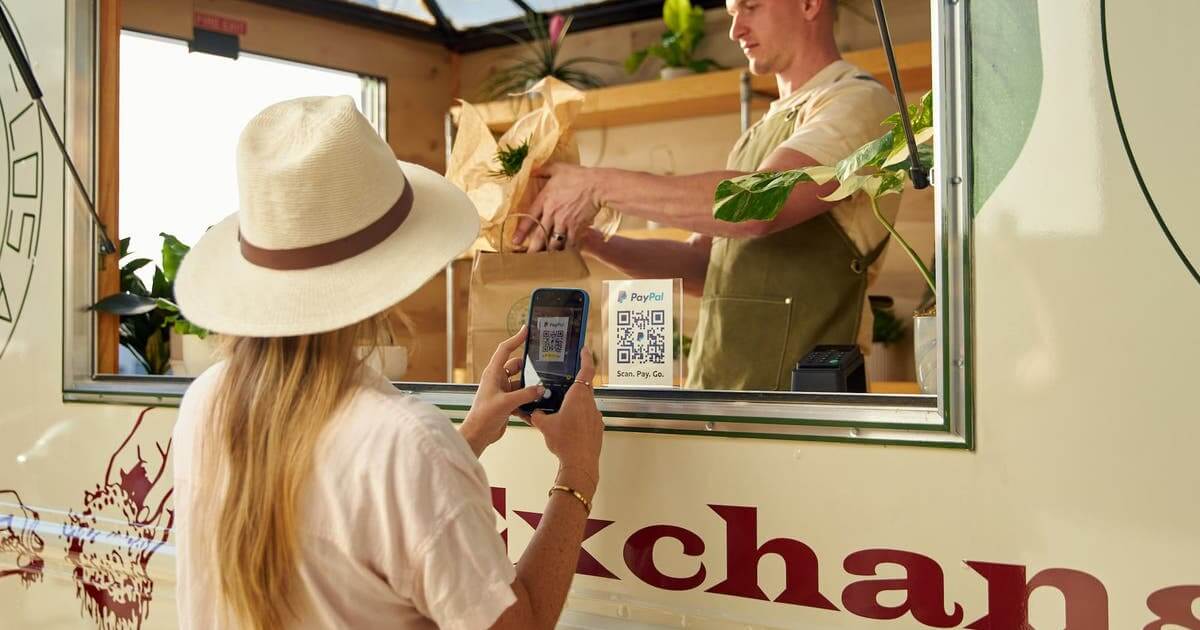
Part 1 : How PayPal Codes Work
QR codes, or Quick Response codes, are two-dimensional barcodes that store data accessible via a smartphone camera. Unlike traditional barcodes, which only hold information horizontally, QR codes store data both horizontally and vertically, allowing them to contain significantly more information. When scanned, a QR code directs the user to a specific set of data, such as a URL, a product's information, or payment details.
PayPal has leveraged this technology to streamline the payment process. The process of using a PayPal QR code for payment is straightforward. A merchant generates a unique QR code through their PayPal account, which is then displayed for customers to scan using their smartphone camera. The scan directs the customer to a PayPal payment page where they can complete the transaction using their PayPal account balance, linked bank account, or credit/debit card.
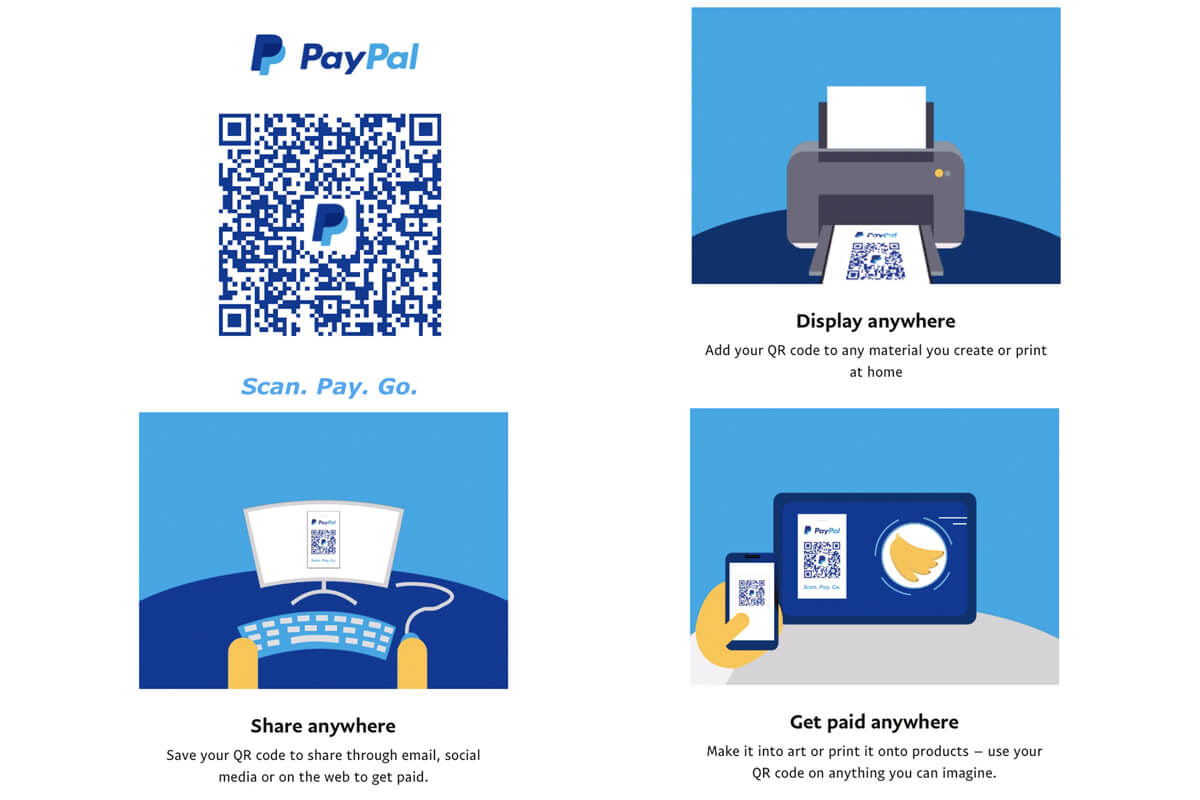
Part 2. PayPal QR Code Generator & How to Create PayPal QR Code?
While PayPal offers its own QR code generation, usingiMyFone QRShow provides unique advantages. QRShow allows for enhanced customization, enabling businesses to integrate branding elements like logos and colors into their QR codes. It offers advanced security features, ensuring encrypted transactions.
QRShow also supports batch generation, making it efficient for businesses with high transaction volumes. Additionally, the platform provides detailed analytics, helping businesses track and optimize their QR code usage. These features make iMyFone QRShow a superior choice for generating PayPal QR codes with added customization, security, and efficiency.
Step 1: Sign Up and Log In to iMyFone QRShow
- Generate PayPal QR codes, making transactions swift and secure.
- Facilitate instant payments and donations, eliminating the need for cash or card details.
- Customize your PayPal QR code with images, logos, frames, etc.
- Batch creates PayPal QR codes, and monitors and analyzes the performance.
Step 2: Select the QR Code Type for your PayPal
On the dashboard, select the type of QR code you want to create. For this guide, choose the ‘PayPal’ option.
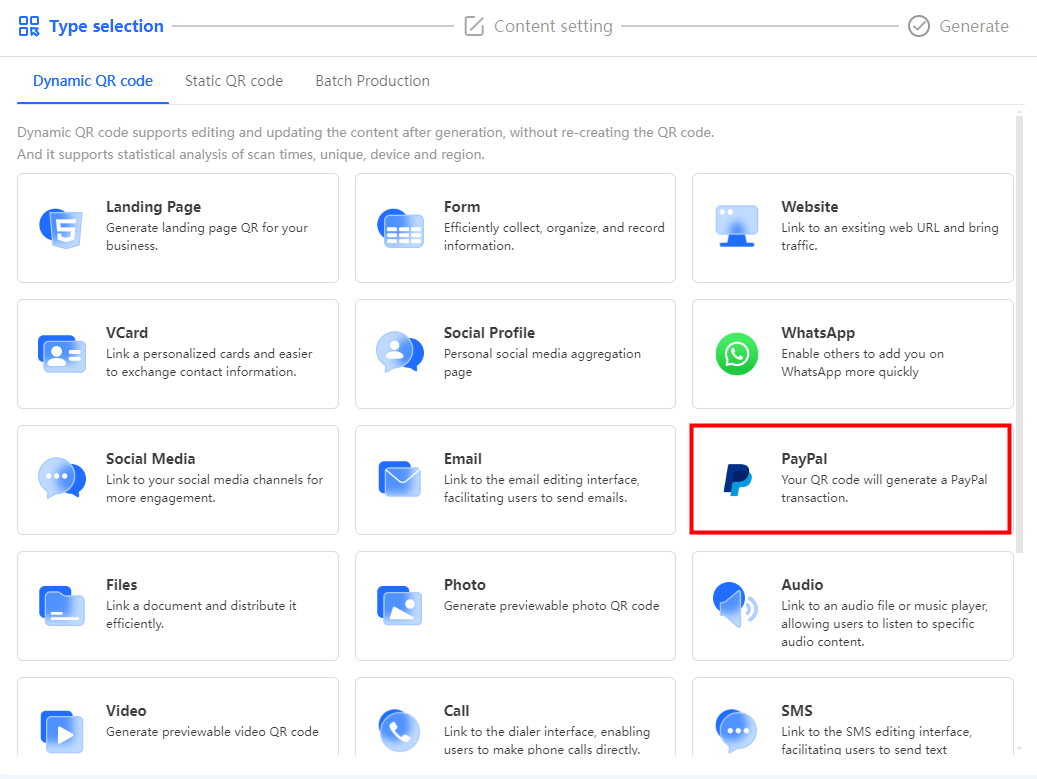
Step 3: Enter PayPal Information
PayPal Email Address: Enter the email address associated with your PayPal account.
Amount: Specify an amount if you want the QR code to be for a fixed payment amount. Leave it blank if you want the payer to enter the amount manually.
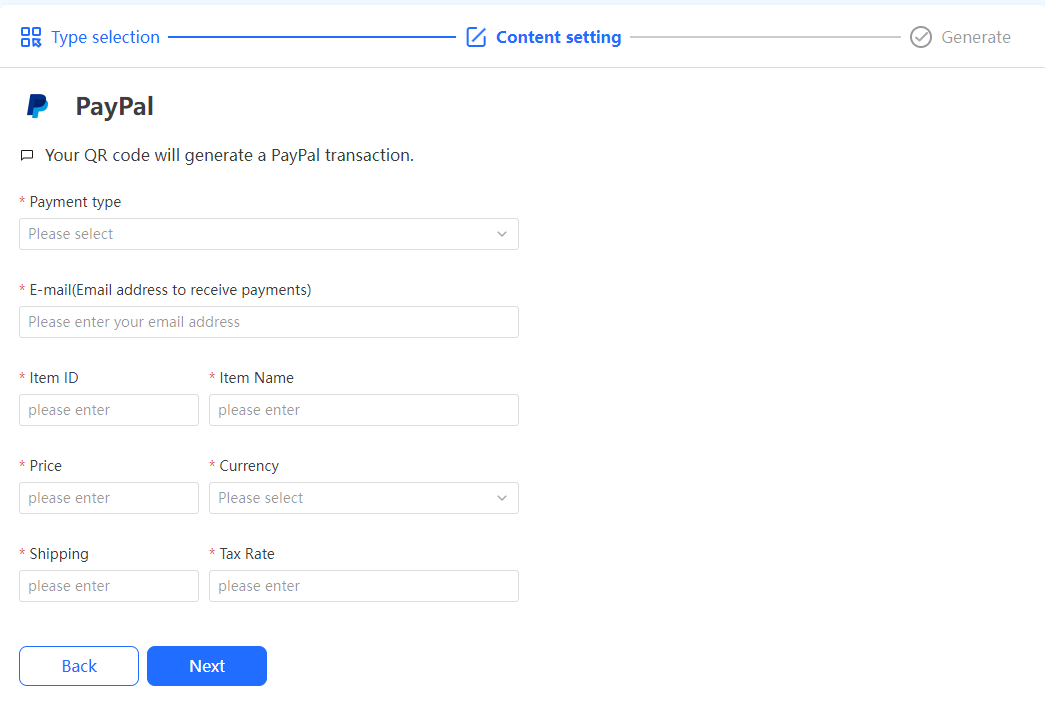
Step 4: Customize Your QR Code for PayPal QR Code
Colors: Choose the colors for your QR code to match your branding or preference.
Logo: Add your logo to the center of the QR code for a personalized touch.
Patterns: Select from various patterns to change the appearance of the QR code’s modules.
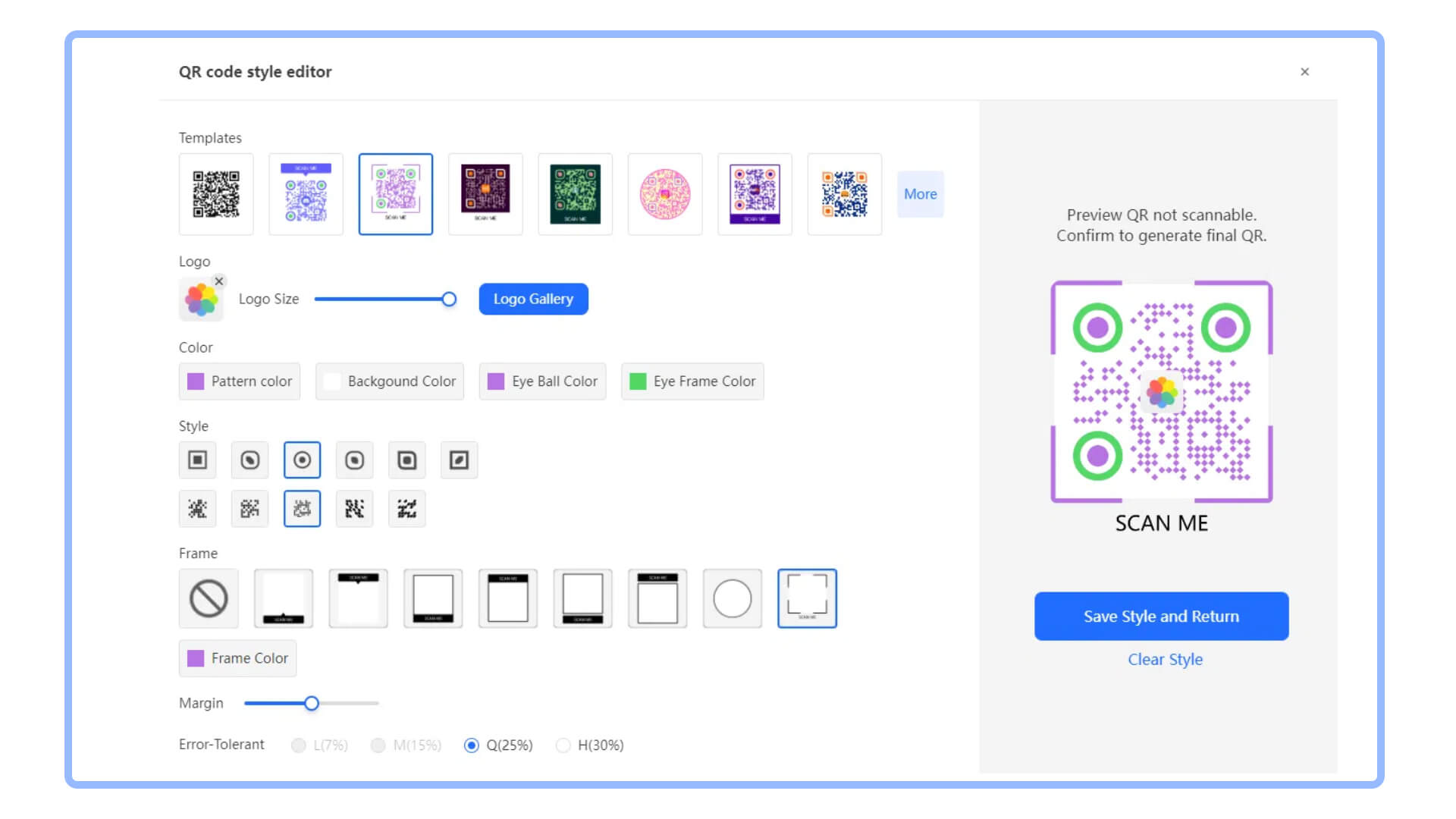
Step 5: Generate and download the PayPal QR Code
After customizing your QR code, click on the ‘Generate’ button. Once generated, you can download the QR code in high resolution. Save the file to your device.
Print the QR code and display it at your business location, on marketing materials, or anywhere it might be scanned by customers. Share the QR code on your website, social media, or email campaigns to facilitate easy payments.
Step 6: Monitor and Analyze (Optional)
Use iMyFone QRShow’s analytics feature to monitor the performance of your QR codes. Track the number of scans, user locations, and devices used to gain insights into your audience’s behavior.
By following these steps, you can efficiently create a PayPal QR code using iMyFone QRShow, enhancing your business’s payment options and providing a seamless experience for your customers.
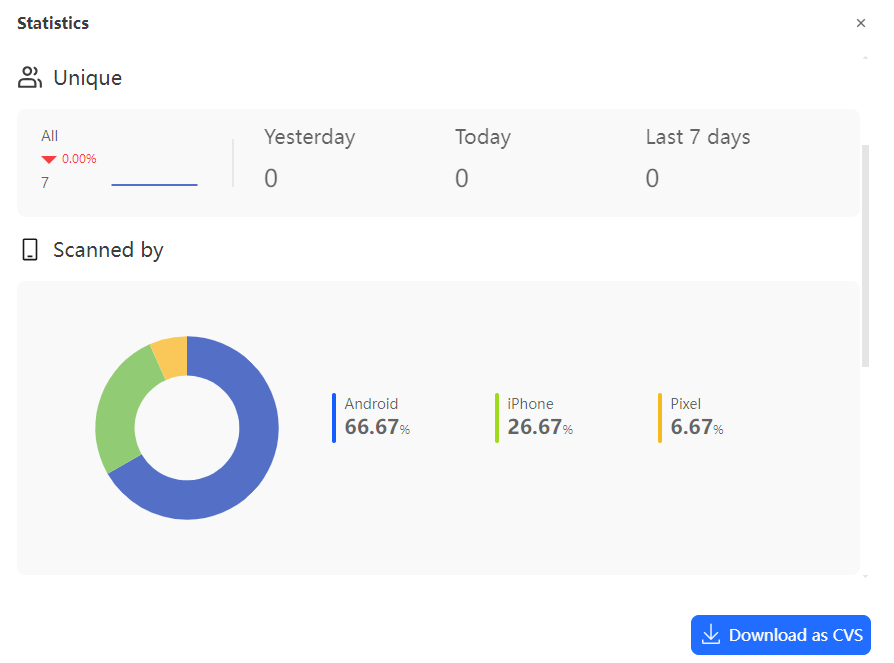
Part 3 : Advantages of PayPal QR Codes
1. Convenience and Speed
One of the primary benefits of PayPal QR codes is the convenience they offer. Traditional payment methods often involve several steps, including swiping a card, entering a PIN, and waiting for authorization. In contrast, scanning a QR code is quick and effortless, reducing transaction times and minimizing the need for physical contact—a significant advantage in a post-pandemic world.
2. Security
Security is a critical concern in digital payments, and PayPal QR codes address this through several layers of protection. Each transaction is encrypted, ensuring that sensitive information remains secure. Additionally, QR codes can be customized to include specific transaction details, reducing the risk of fraud and errors. PayPal's robust fraud detection mechanisms further enhance the security of QR code transactions, providing peace of mind for both merchants and customers.
3. Versatility
PayPal QR codes can be used across various settings, from retail stores to online platforms. They are particularly beneficial for small businesses and vendors at markets or pop-up shops, where traditional payment terminals might be impractical. By simply displaying a QR code, these merchants can accept payments without needing extensive hardware or infrastructure.
4. Cost-Effectiveness
For small businesses, the cost of maintaining traditional payment systems can be prohibitive. PayPal QR codes offer a cost-effective alternative, eliminating the need for expensive point-of-sale systems. This is particularly advantageous for startups and small enterprises looking to minimize expenses while still providing a modern payment solution.
Part 4: The Rise of PayPal QR Codes in Digital Payments
1. Global Adoption
The use of QR codes in payments has seen a significant rise globally. In Asia, particularly in countries like China and India, QR codes have become a ubiquitous payment method, driven by platforms like Alipay and WeChat Pay. This trend is now gaining momentum in other parts of the world, including the United States and Europe, where digital payment adoption is on the rise.
2. Pandemic-Driven Growth
The COVID-19 pandemic has accelerated the adoption of contactless payment methods, including QR codes. With health and safety concerns paramount, both consumers and businesses have sought ways to minimize physical contact during transactions. QR codes provide an ideal solution, enabling touch-free payments that align with social distancing guidelines.
3. Integration with Mobile Wallets
The integration of QR codes with mobile wallets has further propelled their usage. Mobile wallets, such as PayPal, Apple Pay, and Google Pay, support QR code payments, allowing users to complete transactions quickly and securely using their smartphones. This integration enhances the user experience, making QR code payments a seamless part of the digital wallet ecosystem.
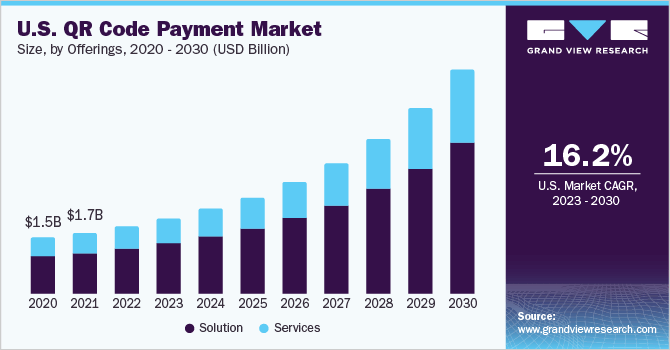
Part 5: PayPal's Role in the QR Code Payment Revolution
Innovative Solutions
PayPal has been at the forefront of the QR code payment revolution, continuously innovating to meet the evolving needs of its users. The company's QR code payment system is designed to be user-friendly and accessible, enabling businesses of all sizes to adopt this technology easily. PayPal's extensive network and reputation for reliability further contribute to the widespread acceptance of its QR code payments.
Empowering Small Businesses
One of PayPal's key objectives with its QR code payment system is to empower small businesses. By providing a simple, low-cost payment solution, PayPal helps small merchants compete with larger retailers. The ability to accept QR code payments opens new opportunities for these businesses, allowing them to reach a broader customer base and improve their overall sales performance.
Enhancing Customer Experience
For customers, PayPal QR codes offer a streamlined and efficient payment experience. The simplicity of scanning a code and completing a transaction in seconds enhances customer satisfaction and encourages repeat business. PayPal's commitment to security ensures that customers can trust the platform, further enhancing their experience.
Part 6: Future Prospects of PayPal QR Codes
Expansion into New Markets
As the adoption of QR code payments continues to grow, PayPal is well-positioned to expand its reach into new markets. The company's global presence and established infrastructure make it an ideal player to drive the adoption of QR code payments in emerging markets. By leveraging its expertise and resources, PayPal can help accelerate the shift towards digital payments worldwide.
Integration with Emerging Technologies
The future of QR code payments is likely to see increased integration with emerging technologies such as blockchain and the Internet of Things (IoT). These technologies can enhance the functionality and security of QR code payments, offering new possibilities for innovation. PayPal's commitment to staying at the forefront of technological advancements positions it well to capitalize on these opportunities.
Enhanced Features and Capabilities
PayPal is continuously working to enhance its QR code payment system with new features and capabilities. Future developments may include advanced analytics for merchants, personalized offers for customers, and integration with loyalty programs. These enhancements will further solidify PayPal's position as a leader in the QR code payment space and provide additional value to its users.
Conclusion
PayPal QR codes represent a significant advancement in the realm of digital payments, offering a convenient, secure, and versatile solution for businesses and consumers. As the world increasingly embraces contactless transactions, the adoption of QR code payments is set to rise, with PayPal leading the charge. By empowering small businesses, enhancing customer experiences, and continuously innovating, PayPal is shaping the future of payments and paving the way for a cashless society. The integration of QR codes into PayPal's ecosystem underscores the company's commitment to driving digital transformation and providing cutting-edge solutions in the ever-evolving landscape of financial technology.









Rated Successfully!
You have already rated this article!